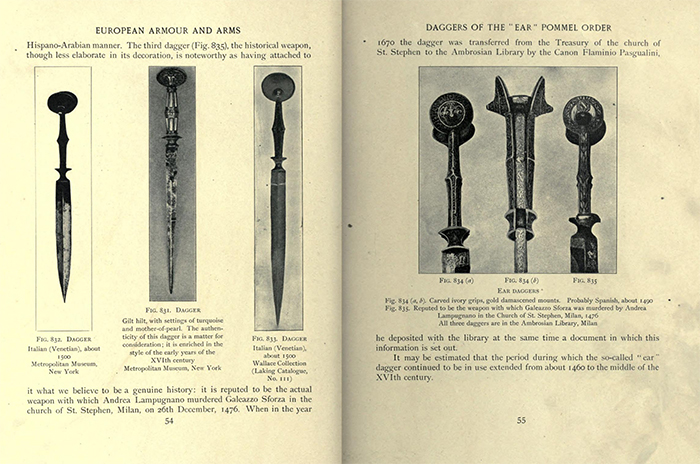I'm working on a historical fiction, and would greatly appreciate help with understanding the etiquette of wearing a sidearm.
The story takes place in 2nd half of 15th century. It’s peacetime. Location is Italy - characters are Italians and Franks from the Holy Roman Empire. More specifically:
- A Habsburg prince
Man from a noble house in HRE
Members of Italian nobility
I have a lot of questions... so here goes!
1. In illustrations of nobility of the time, I see a lot of daggers. How accurate is that depiction?
2. I’ve read that in HRE men were required to wear a sword in public. Did that apply to nobility as well?
3. If yes, was it swords or daggers?
4. Would they wear them even at court, around Very Important People?
5. Was it required for nobility to wear a sidearm in Italy, as well? (if not required, was it a personal choice, or dictated by class status?)
6. What was the extent of sidearm etiquette? Would a guy not even think of leaving the house without his weapon, or was it situational?
7. If situational, when would you not have one on you in public? (I’m assuming they wouldn’t wear them in the house, right?)
8. Would they have something fancy for special occasions?
9. Would a guy have the one sidearm he’d wear all the time, or was it a collection of items, and you pick and choose what weapon you wanna wear today. Like a tie rack, but with sharp things. :)
10. For visual reference - what kind of dagger or sword would HRE nobility wear? (Rondels were all the rage back in the day, but I’m not sure if that was across the board, or if the nobles used something else.) Same question for Italy - any specific style of dagger?
And a question for a situation in the story -- if a prince from the HRE was sent to live in Italy as a political hostage, would he be banned from wearing a sidearm? Or would his status as a royal trump his position as hostage?
Oof. That's a lot. XD A huge thank you in advance to anyone willing to share their knowledge on the subject! I’ve had a surprising difficulty googling this, so your answers will be most, most appreciated!
P.S.: If you get into it and feel like writing a wall of text on the subject -- please do! I am a sponge, ready to take in aaaalll the info. :D
